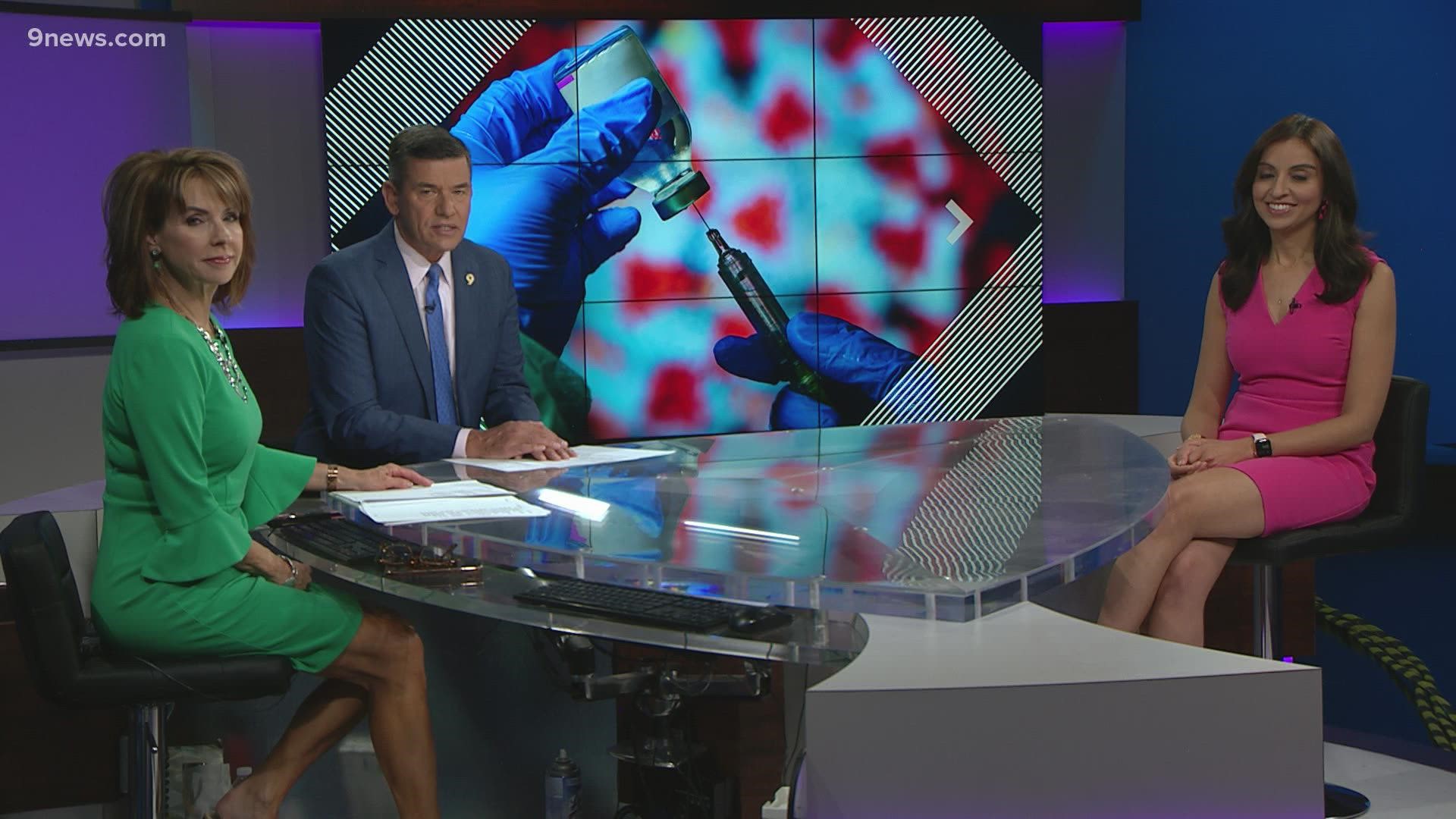DENVER — With the holidays fast approaching, flu season on the way, and increased vaccine mandates throughout the state, many Coloradans are still hesitant to get the COVID-19 vaccine.
Viewers have reached out to 9NEWS asking how safe it is to take the vaccine along with the flu shot, and whether or not you need it if you've already had the virus, among other questions.
9NEWS health expert Dr. Payal Kohli answered some of the frequently asked questions we've gotten about COVID-19 and the vaccine.
Editor's note: Answers have been edited for context and clarity.
9NEWS: If I've had COVID, should I still get a vaccination?
Dr. Kohli: An increasing proportion of our population is now falling into this scenario. Before, it was all theoretical. We said, the science probably suggests that you should. Now, we have data. We have studies that came out of the CDC done in Kentucky that shows that if you've had COVID and you get the vaccine, you're twice as protected as somebody who's had COVID and doesn't get the vaccine. So yes, absolutely.
How soon after recovering from COVID-19 should someone get vaccinated? Does it matter?
Dr. Kohli: A bit of it depends on how severe your COVID illness was, but the idea here is that your immune system is activated from the COVID, and if you get the vaccine too soon, your immune system can actually reject the vaccine and prevent it from doing its job. So the magic window appears to be about two to three months. So not too soon, not too late. But you definitely want to get it within the first few months of having the infection.
If I've had COVID and I don't get vaccinated, am I protected?
Dr. Kohli: Getting COVID is a different immune response than getting the vaccine. So when you get the vaccine, you have only made antibodies to the spike protein, because that's the only part of the virus that you've seen. When you get COVID, you actually make antibodies to every part of the virus, including the nucleocapsid, it's called, as well as the spike protein. So you have polyclonal antibodies, many different types. Now that is good, in a way, but the bad thing about that is that they're not as good as neutralizing the virus. So when we look in the lab, those antibodies don't work as well to neutralize the virus. So that is why that vaccine really helps to boost those neutralizing antibodies.
If someone has antibodies, can you tell if they're from vaccination or natural infection?
Dr. Kohli: A lot of my patients are coming in and asking, "I don't know if I've had COVID or not. How can I tell?" You want to check antibodies against the nucleocapsid. So remember what I just said: the only thing you make antibodies to is the spike if you've gotten the vaccine. But if you've gotten the virus, you'll have antibodies against the nucleocapsid as well.
Is getting the flu vaccine still valuable and necessary?
Dr. Kohli: Critically important. This year, they've made it quadrivalent, so it's four strain, so to speak. It's more important this year than it was last year because our masks are coming off and we don't have the protection from last year. Because most of us, thankfully, didn't get the flu last year, some experts are predicting it may even be a worse season this year because the masks have come off and we don't have the little bit of that immunity leftover from last year. Now, it's the perfect window. Let's not wait too long, because before Halloween we have to have that shot in that arm so that we're protected this year.
Can getting the vaccine protect me against getting other viruses?
Dr. Kohli: We don’t yet know if getting the COVID vaccine protects against other viruses. It hasn’t been studied. But we do know that this is the case with other vaccines, so we hope it is with this one too. I like to think of every vaccine we get as a deposit in our immune system’s savings bank.
Do those who have had COVID and then get vaccinated have “lifelong” protection?
Dr. Kohli: Science suggests getting the vaccine after natural infection creates long-lasting “memory” cells that live in our lymph nodes and can activate to make more antibodies in the future. We don’t know how long these cells will last, but there are features that suggest they are long-lasting cells.
SUGGESTED VIDEOS: COVID-19 Vaccine

